White Gate Farm Tour — March 24, 2018
East Lyme, Connecticut
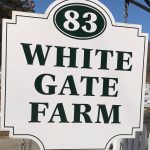
On an unseasonably cold weekend in March, Darryl and I visited our friend David and his family in Connecticut. David had kept the daytime plans for Saturday a secret. We were wowed when he took us to White Gate Farm, located in East Lyme, Connecticut and surrounded by rolling hills molded by glaciers.
As we approached White Gate Farm we immediately felt at home following the winding dirt road up to the white gate, behind which a farm house now serves as an inn. The farm’s three ponds and adjacent Pattagansett Lake frame the 6-acre working farm alongside approximately one mile of stone walls dating back to the 1700s. I wonder what they protected back then? The farm’s history records don’t start until the 1940s or 50s, when it was a dairy farm. The farm changed hands a few more times before being purchased by the current owner’s mother in 1975.
The farm’s Operations Manager Kent and Farm Manager Fred took the time out of their incredibly busy schedule to give us a fantastic and extended tour culminating in a delectable farm-to-table lunch.
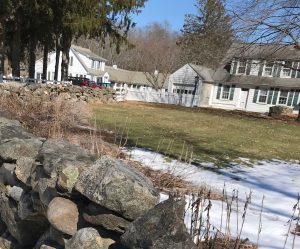
Organic Farming
Kent showered us with warmth and welcome as soon as we entered the farm stand. But I have to admit that I was a little distracted in those first few minutes while we gathered for the tour — the lure of farm-fresh food and ingredients made my culinary heart sing — and I couldn’t wait to explore the delightful offerings. Once we were safely removed from the Farm Stand, I was able to thoroughly enjoy the educational and inspiring tour with Kent and Fred.
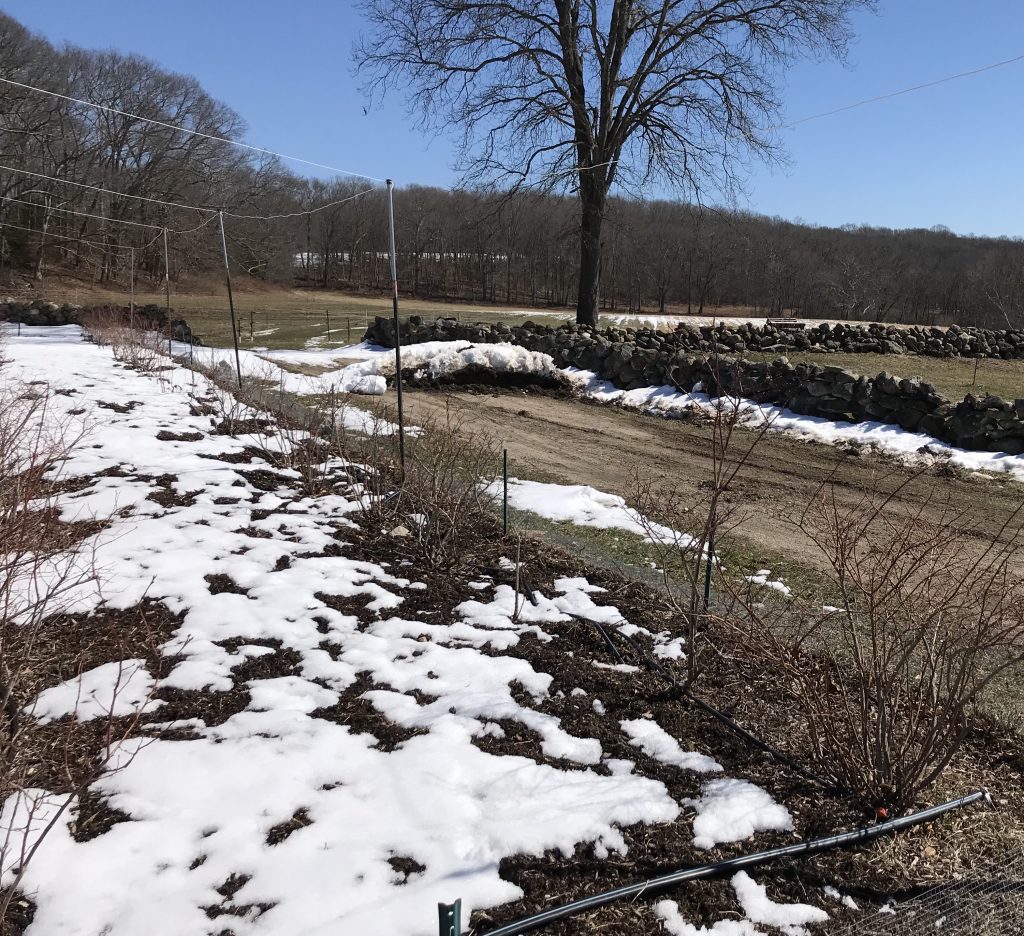
Kent explained that five active growing fields and pasture for the organically raised livestock comprise about six acres of the 100 acre farm. Some previously cleared fields had not been used in so long that they became wooded again, and some of the currently farmed fields were once hayfields supplying area farmers. This worked to the advantage of the owners when they started farming certified organic in 2000. As no conventional crops had been grown for decades, there was no waiting period after all tests came back clean. During our tour, the fields were in various stages of readiness for the next season, but some promise of growth shone green on several of them.
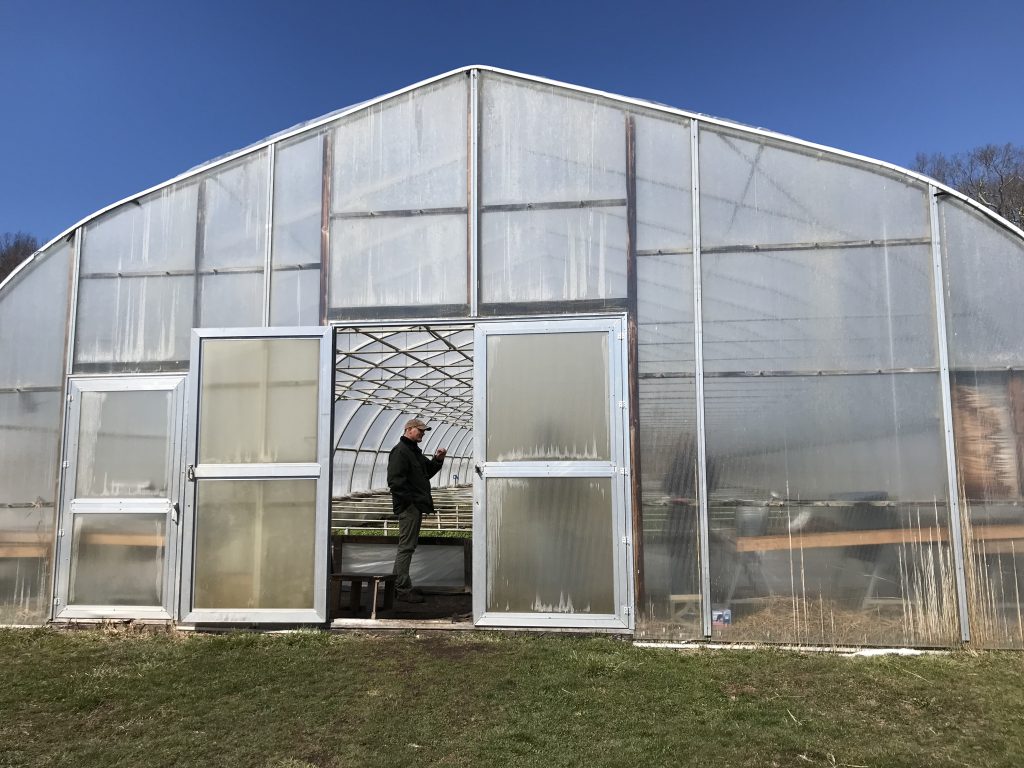
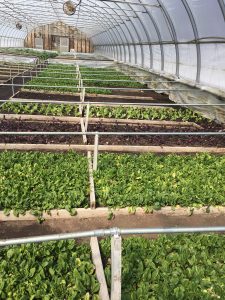
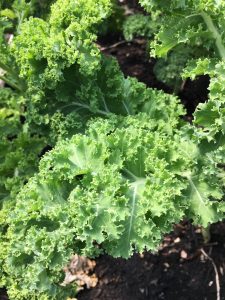
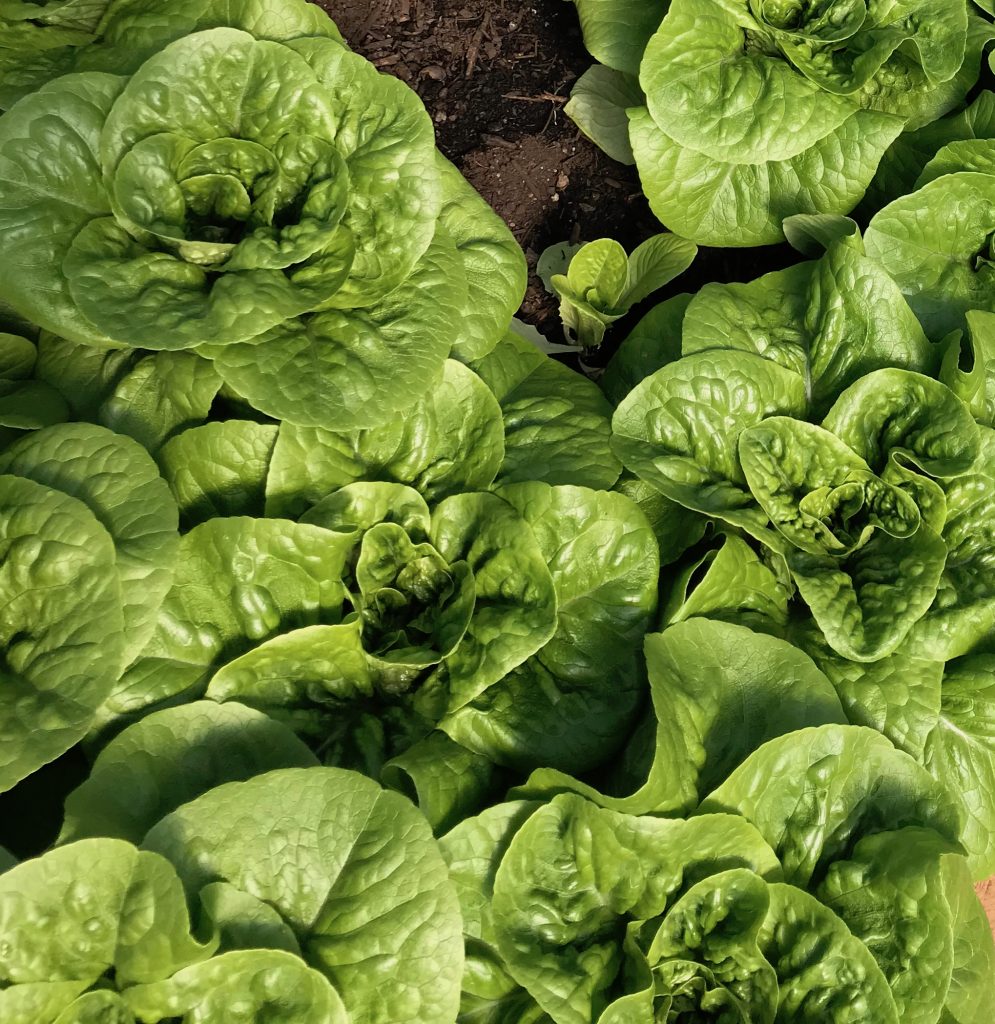
In addition to seasonal farming, White Gate Farm also features an impressive hoop house filled with starters for spring planting as well as a sizable amount of lettuce, swiss chard, kale and hakurei turnips for harvesting during the cold months. I had not previously heard of hakurei turnips, so I read up on them. They were first cultivated in Japan in the mid-20th century, relatively new to the turnip family, but offering some desirable qualities in comparison to their cousins — no bitterness, can be eaten raw or cooked, and doesn’t need to be peeled. And on top of that, they’re easy to grow and a perfect brassica for an organic farm.
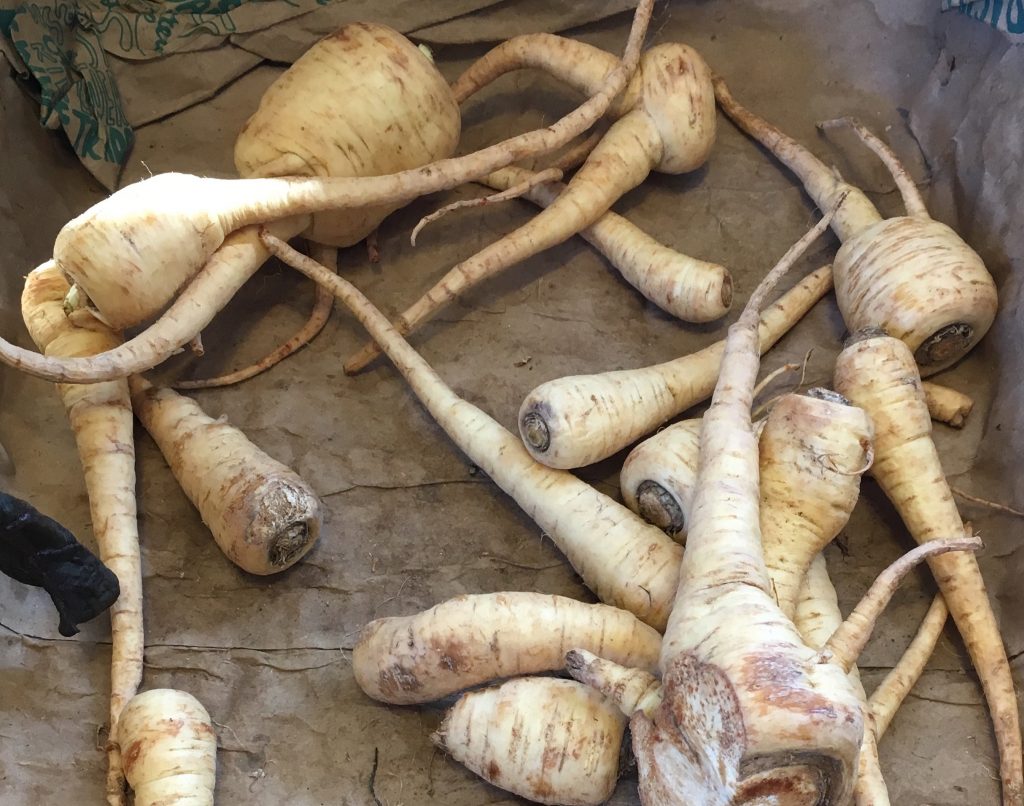
Adjacent to the hoop house, a greenhouse was filled with seedlings getting ready for planting in the fertile fields in mid- to late April. Fred showed us rows of barely visible green shoots promising future crops of Purplette and Cortland onions. As we went down the rows of seedlings and starters we could easily identify the kale, swiss chard and spinach starters. And occasionally, a volunteer lettuce would peek out.
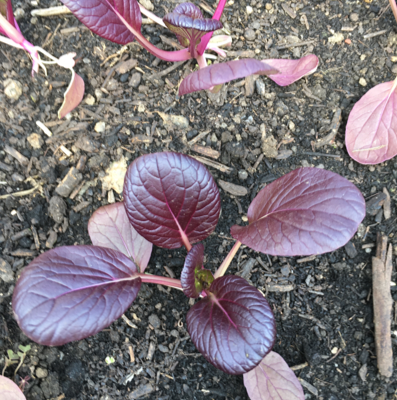
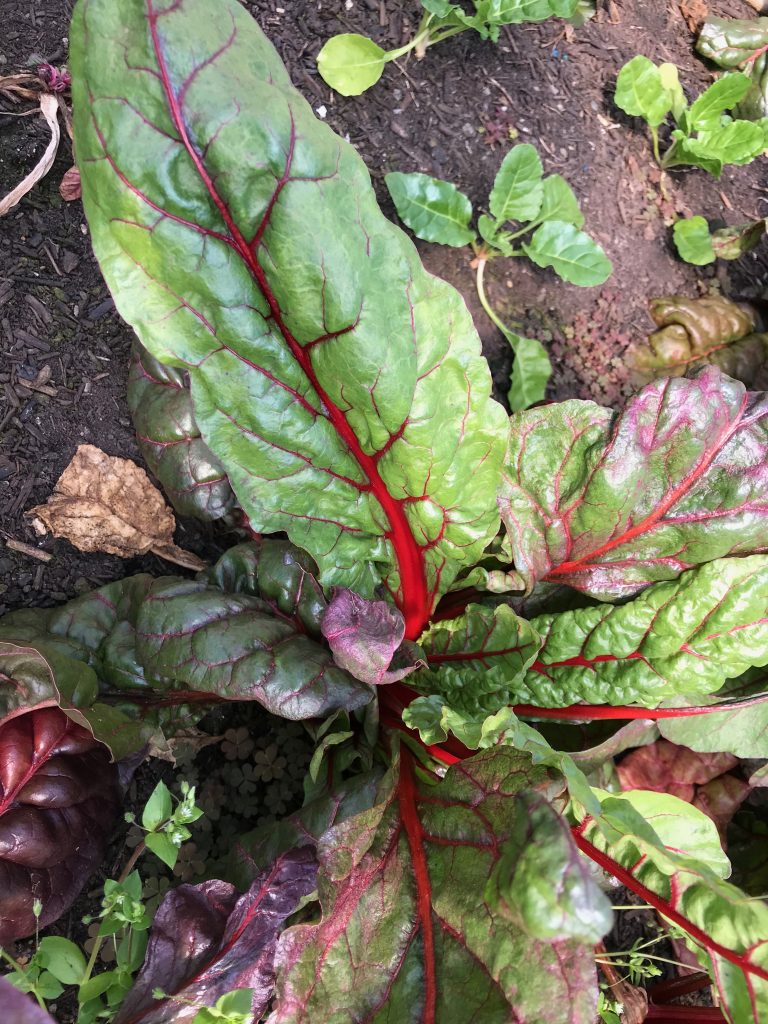
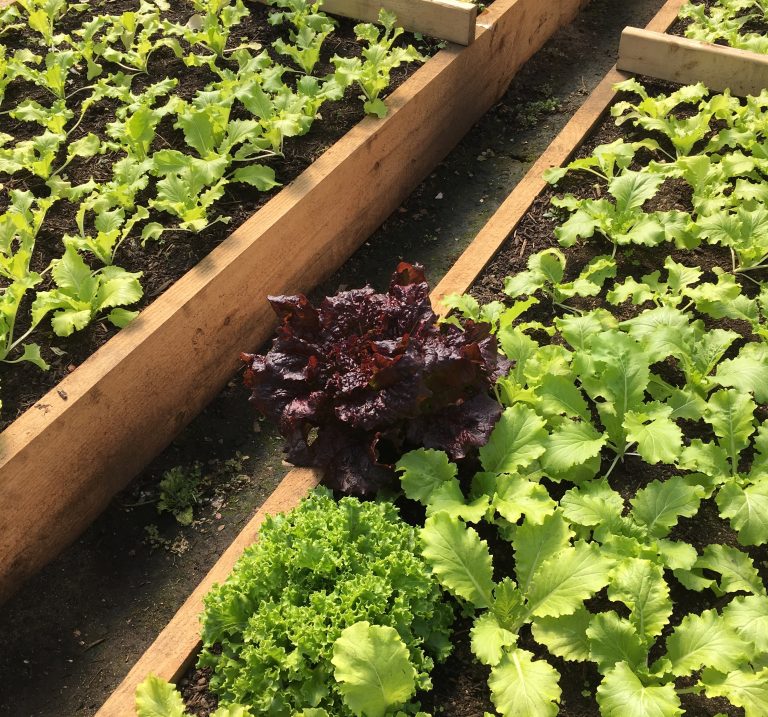
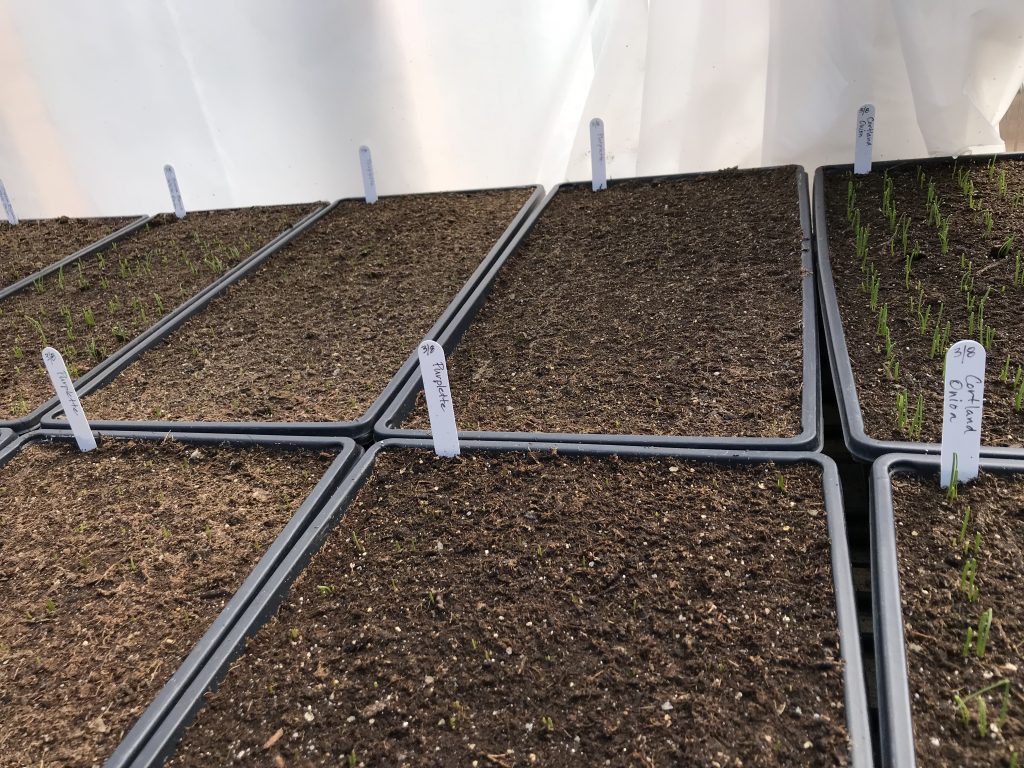
Livestock
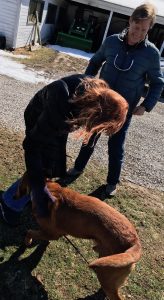
In the farm’s livestock operation the only live animals we saw were some laying hens and an employee’s dog because of the season. But Kent and Fred made it easy to picture lambs hopping in the meadow, turkeys gobbling in the background, or chickens clucking and pecking their way across the field. I have to admit though, ever since starting to eat mostly vegetarian, I have less of an interest in seeing any facilities that slaughter and process animals — humanely raised or not — in the end they’re all just food. I know that it would take nothing short of a miracle — or a global catastrophe? — to turn all humans into vegetarians. I still enjoy eating meat, though much less frequently, and I have nothing against non-industrial, humane, and organic (with or without certification) meat, poultry or seafood producers. But we could perhaps avert the global catastrophe by being more conscientious about how much meat we consume and more conscious of how it was made.
Ecosystem
White Gate Farm has been growing certified organic since 2000 — the same year that Pauline Lord and David Harlow started the White Gate Farm business. East Lyme is located on the Long Island Sound, allowing for a relatively long growing season for New England thanks to the increased temperatures brought to the coastal region by warm ocean currents pushing their heated air ashore. In their outdoor fields, they can start growing in mid- to late-April all the way through to October, and enjoy field harvests into late December. Their organic seeds are sourced from companies such as High Mowing Seeds from right down the road here in Vermont, Fedco from Clinton Maine, New Sprouts Farm from North Carolina, and the Maine Potato Lady from Guilford, Maine. The loamy soil is rich in organic matter, with at least 9-10% biological decomposition materials. Most soils contain between 2 and 10% of soil organic matter — the higher the percentage, the better the quality of the soil.
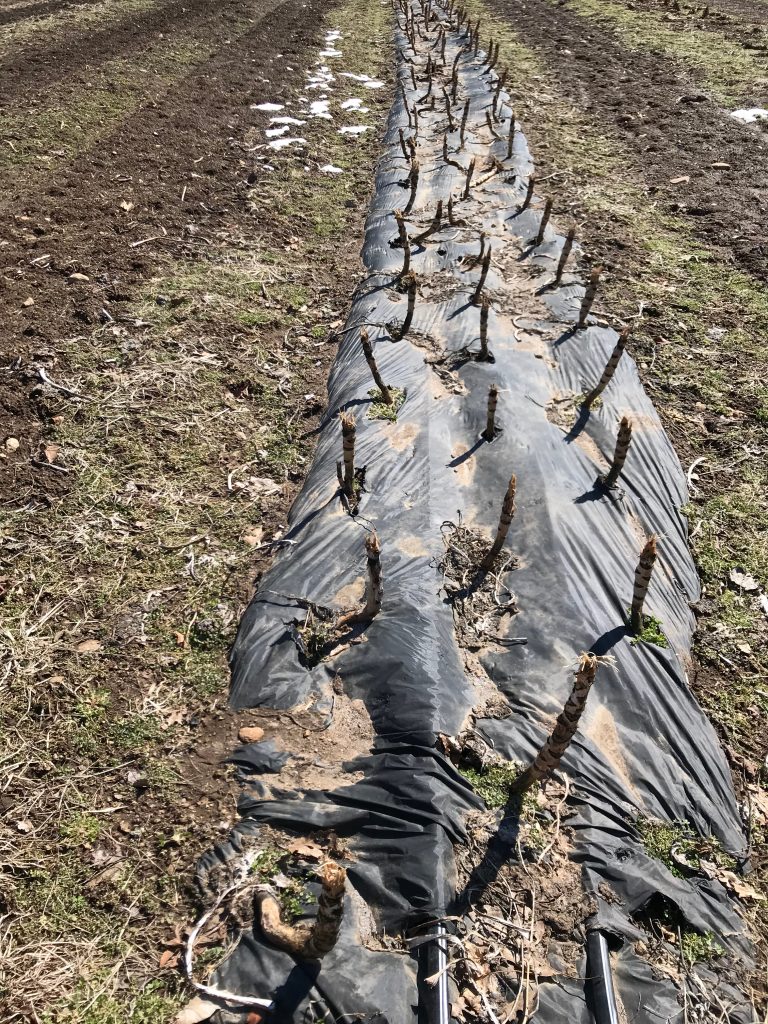

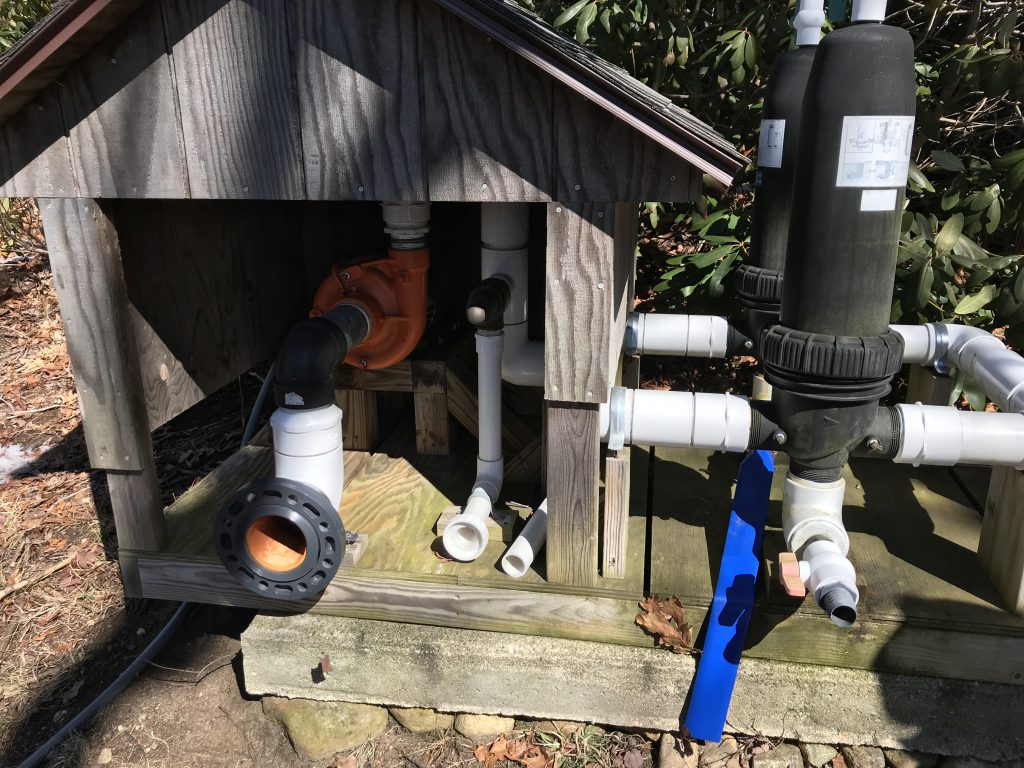
The path down through the growing fields took us to Pattagansett Lake, which not only provides the drip irrigation for all the fields through a powerful irrigation pump, but also offers a scenic New England vista, best enjoyed combined with a stay at the lovely and intimate guest house — converted from a historic icehouse. Guests can also lodge in a room or suite inside the spacious farm house.
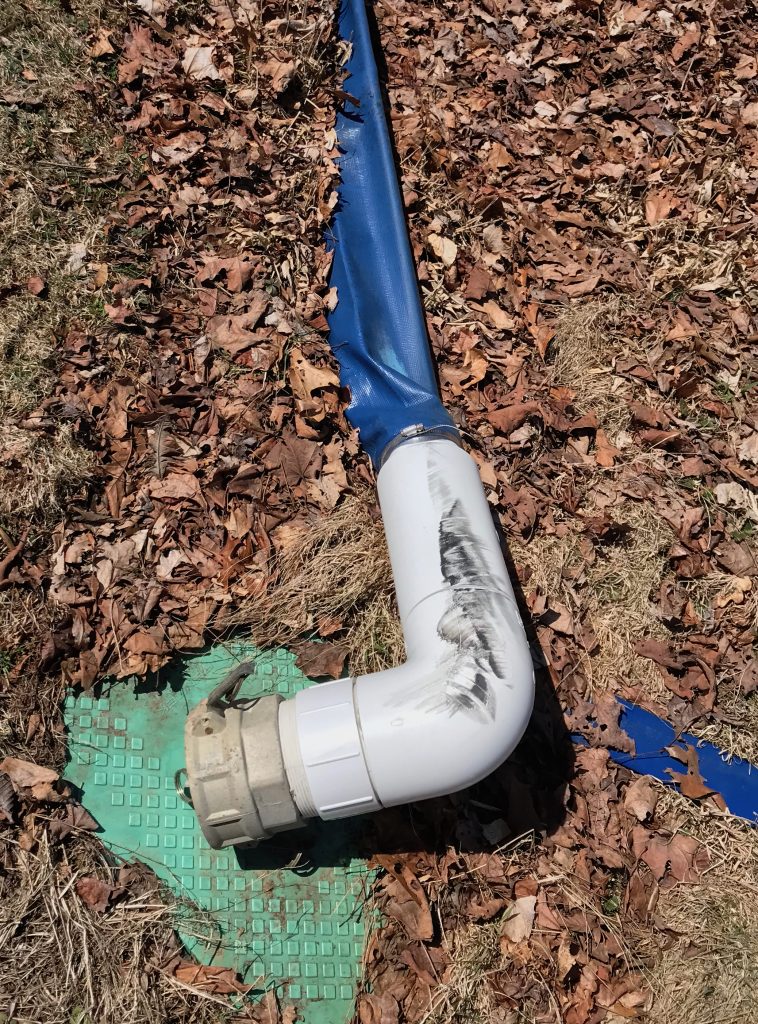
The Farmhouse and Lunch
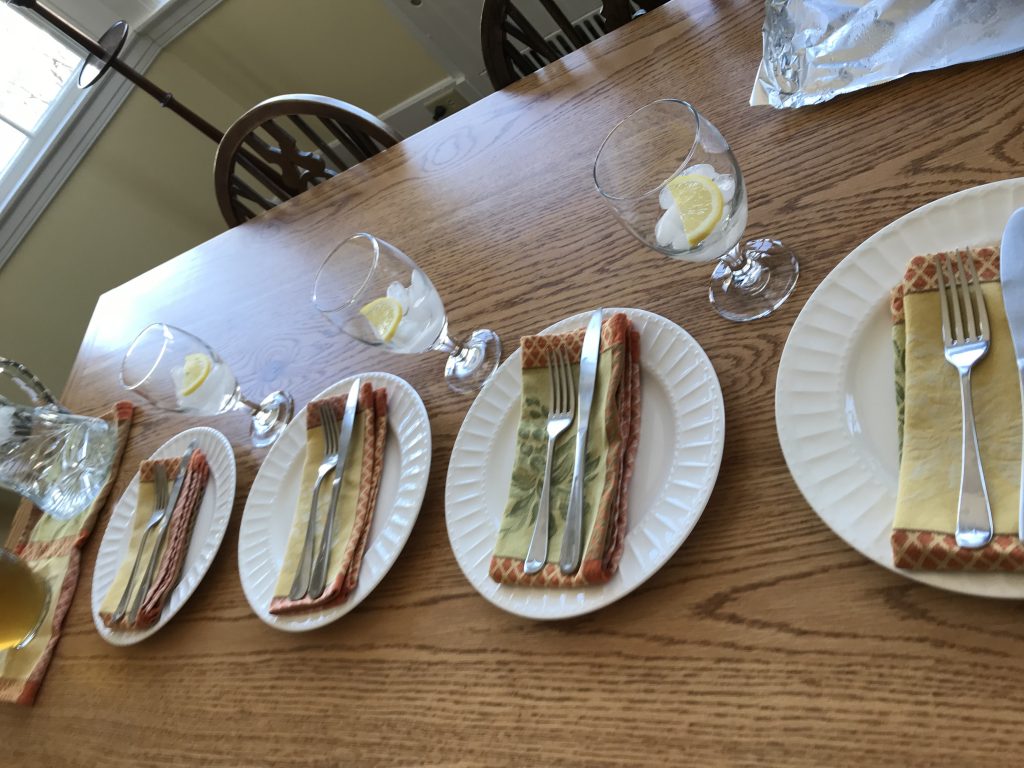

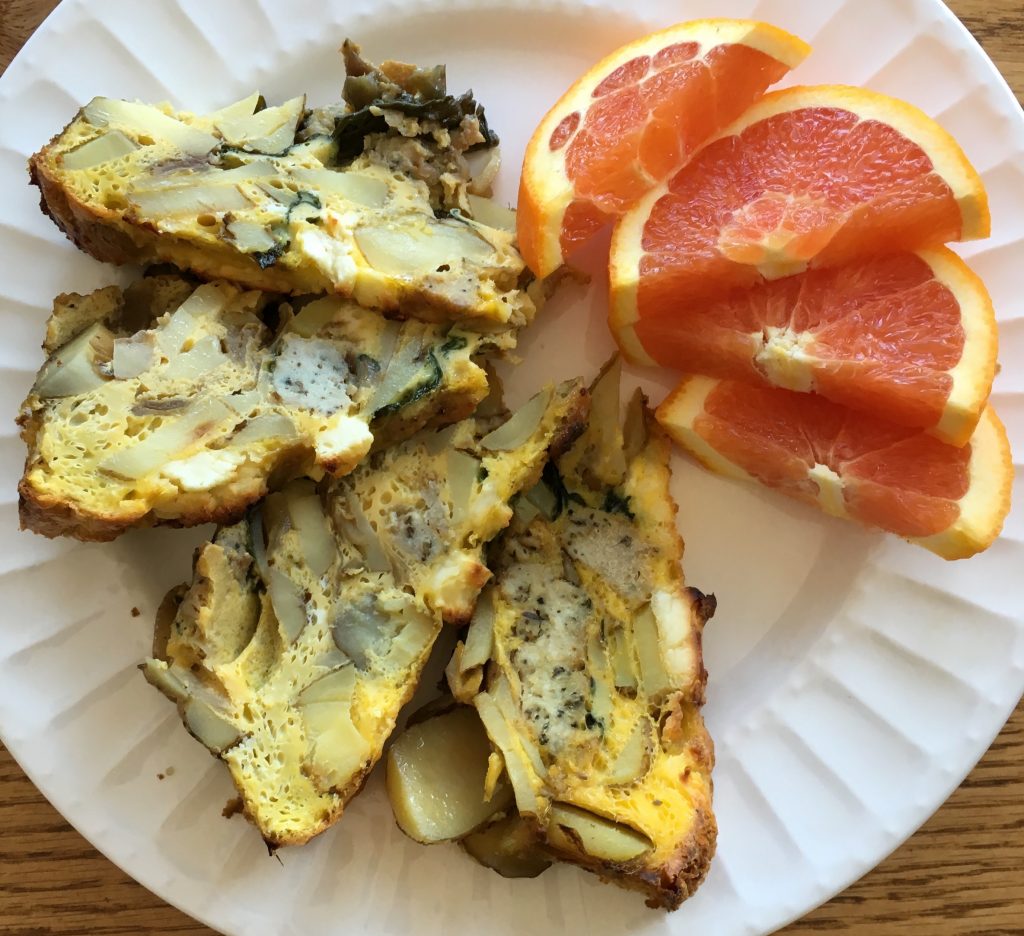
By the time we entered the inner sanctum of the farmhouse — the room containing the hearth — we had worked up an appetite and quickly followed Fred and Kent’s invitation to join them at the long, wooden, typical farmhouse table laden with all kinds of fresh farm-to-table deliciousness. Of course, we eagerly tried everything. The iced spearmint green tea was a perfect thirst-quencher. The savory offerings were visually and olfactory appealing — a perfectly seasoned frittata with house-made Italian sausage and blood orange slice; and two kinds of pizza made with produce grown in the hoop house — kale pesto with feta cheese, and mozzarella with roasted cherry tomatoes. The freshness of both the protein and the produce were present in every bite.

But just as enjoyable as the food was the conversation with Kent and Fred over lunch. I think it was Darryl who said that the place felt authentic. Kent was delighted to hear that, because authenticity is truly one of the backbones of White Gate Farm and its success. By incorporating an organic farm with value-added services — catering, cooking classes, farm-to-table dinners, retreats, educational tours and programs, and lodging — White Gate Farm models an ethical, organic and sustainable operation. Oh, and did I mention profitable?

Even though we had stuffed our bellies with the delicious lunch items, David, Darryl and I did not hesitate for one moment before unanimously choosing the carrot cake as the one to try right then and there for dessert. And we were not disappointed — the cake was moist, the frosting delicious and not overbearingly sweet — enjoyable to the last crumb. We didn’t even attempt to protest as Fred and Kent continued their generosity and packed up the remainder of the desserts for us.

The Farm Stand
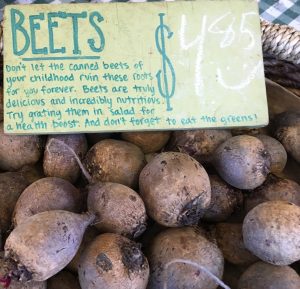
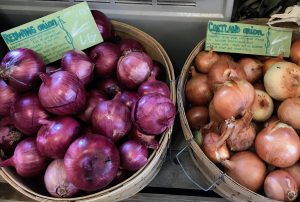
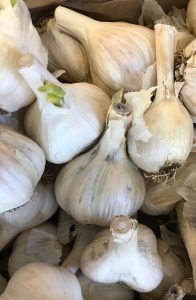
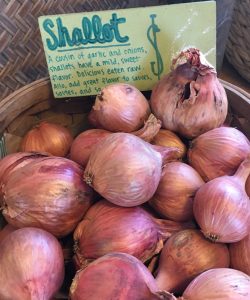
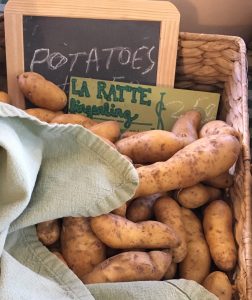
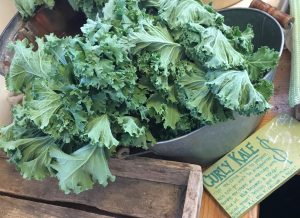
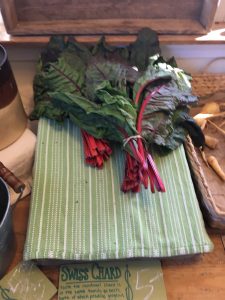
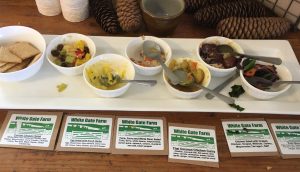
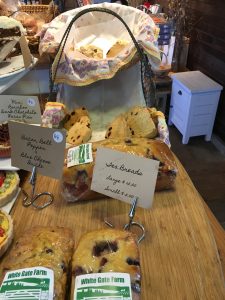
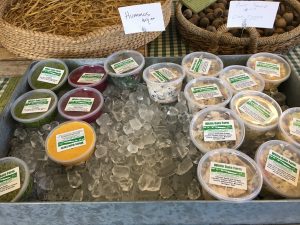

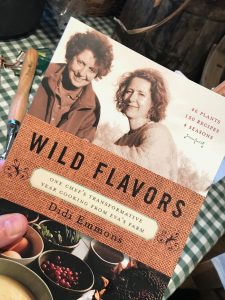
Of course we couldn’t leave until we returned to the farm stand. Thanks to the hoop house, there was a bounty of winter vegetables — from beets, Cortland and Redwing Onions, garlic, shallots and potatoes, to spinach, kale, hakurei turnips and swiss chard. There were also free samples of some of the prepared foods made in-house. I will have to try those on a future visit, I couldn’t possibly fit another bite after our lunch. A back room revealed even more items, including decorative items and books. (I shamelessly mentioned to Darryl that a copy of Wild Flavors by Didi Emmons would be a great birthday gift for me!) After selecting some shallots and garlic to take home for my continued culinary creations, Kent refused to let us pay for them and even hand-selected the best garlic bulbs and shallots and added several more of each. Kent was back in the store conversing with some regular customers about one of their recent trips. It was refreshing to see them truly appreciate what White Gate Farm has to offer, another example of their authenticity. Of course, soon everyone in the store was participating in the conversation, deepening the sense of community.
Kent and Fred were gracious and informative hosts. They showed us how not just hard work, but smart work allowed a relatively small, but very passionate and competent staff to earn White Gate Farm the motto “Here is the Destination.”

